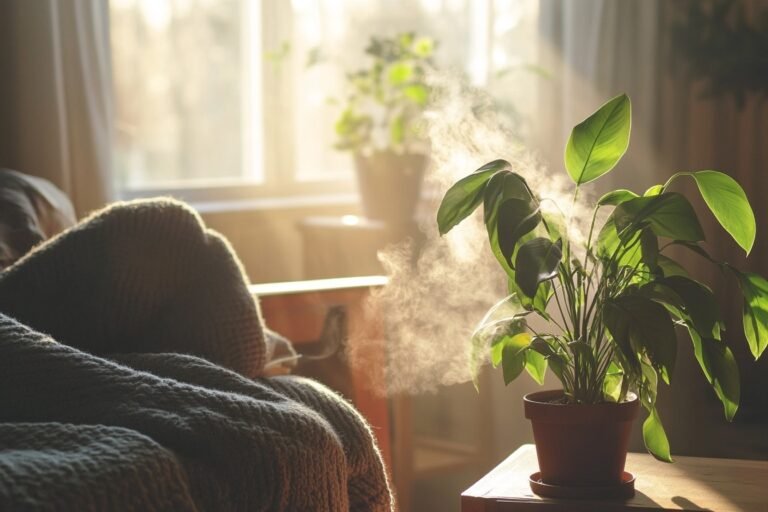A good night’s sleep is essential for maintaining both physical and mental health. One often overlooked factor that can significantly enhance sleep quality is the use of a humidifier. Humidifiers add moisture to the air, which can alleviate various discomforts and contribute to a more restful sleep environment.
In this article, we will explore several tips for using a humidifier to improve your sleep, focusing on the general benefits and characteristics of quiet air humidifiers without mentioning specific brands.
Why Use a Humidifier for Sleep?
Humidifiers can play a crucial role in enhancing sleep by addressing several common issues:
- Relief from Dryness: Dry air can cause discomforts such as dry skin, throat, and nasal passages. A humidifier helps maintain optimal humidity levels, alleviating these symptoms and making breathing easier.
- Reduction of Snoring: Dry air can exacerbate snoring by causing the throat and nasal passages to become dry and irritated. Adding moisture to the air can reduce snoring, leading to a quieter and more restful sleep for everyone.
- Improved Air Quality: Humidifiers can help reduce the presence of airborne allergens and dust, creating a cleaner and healthier sleep environment.
Tips for Using a Humidifier for Better Sleep
1. Optimal Placement
Place your humidifier in a strategic location to maximize its benefits. It should be positioned at least a few feet away from your bed to prevent direct exposure to moisture, which could lead to discomfort. Ensure it’s on a stable surface and away from electronic devices to avoid any potential damage from moisture.
2. Maintain Ideal Humidity Levels
The ideal indoor humidity level is between 30% and 50%. Use a hygrometer to monitor the humidity in your bedroom and adjust the humidifier settings accordingly. Some advanced humidifiers come with built-in sensors that automatically maintain the desired humidity level, providing a hassle-free experience.
3. Regular Cleaning and Maintenance
To ensure your humidifier operates efficiently and safely, regular cleaning is essential. Follow the manufacturer’s instructions for cleaning and maintenance, which typically involves rinsing the tank and base with water and vinegar or a mild detergent. This prevents the buildup of mold, bacteria, and mineral deposits, ensuring clean, healthy air.
4. Use Distilled Water
Using distilled water in your humidifier can help prevent the release of mineral dust into the air, which can occur when using tap water. This is especially important for those with allergies or respiratory sensitivities. Distilled water also reduces the need for frequent cleaning and maintenance.
5. Incorporate Aromatherapy
Some humidifiers are equipped with features that allow the use of essential oils. Incorporating calming scents like lavender or chamomile can enhance relaxation and promote better sleep. However, ensure your humidifier is compatible with essential oils to avoid damage.
Additional Benefits of High-Quality Humidifiers
High-quality humidifiers often come with features that enhance user experience and effectiveness:
- Whisper-Quiet Operation: Advanced humidifiers are designed to operate quietly, ensuring they do not disturb your sleep.
- Energy Efficiency: Look for humidifiers with energy-saving features, such as auto shut-off when the desired humidity level is reached or when the water tank is empty.
- User-Friendly Controls: Intuitive controls and digital displays make it easy to adjust settings and monitor humidity levels.
Sleep Soundly with the Perfect Humidity
Incorporating a humidifier into your sleep routine can significantly improve your sleep quality by addressing issues related to dry air and enhancing overall comfort.
By following these tips, you can create an optimal sleep environment that promotes relaxation and rejuvenation. A good night’s sleep is not just about the hours you spend in bed, but the quality of rest you achieve.
Embrace the benefits of a humidifier and transform your nights into a haven of tranquility.





